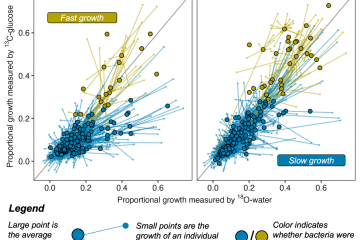Plant acclimation to long-term high nitrogen deposition in an N-rich tropical forest
Elevated atmospheric N deposition threatens ecosystem health through eutrophication in terrestrial ecosystems, but little is known about consequences of N deposition in N-rich tropical ecosystems. We added several levels of N to an N-rich tropical forest and monitored plant growth dynamics, forest nutrient status, plant water use, and water losses from the ecosystem for a decade. We found that plants can acclimate and maintain nutrient balance by altering hydrological cycling. These results demonstrate that while elevated N deposition to already N-rich tropical forests may have minor effects on forest growth, it can exert a detectable influence on hydrological dynamics. Reduced runoff may threaten water supply in rapidly developing tropical regions.Anthropogenic nitrogen (N) deposition has accelerated terrestrial N cycling at regional and global scales, causing nutrient imbalance in many natural and seminatural ecosystems. How added N affects ecosystems where N is already abundant, and how plants acclimate to chronic N deposition in such circumstances, remains poorly understood. Here, we conducted an experiment employing a decade of N additions to examine ecosystem responses and plant acclimation to added N in an N-rich tropical forest. We found that N additions accelerated soil acidification and reduced biologically available cations (especially Ca and Mg) in soils, but plants maintained foliar nutrient supply at least in part by increasing transpiration while decreasing soil water leaching below the rooting zone. We suggest a hypothesis that cation-deficient plants can adjust to elevated N deposition by increasing transpiration and thereby maintaining nutrient balance. This result suggests that long-term elevated N deposition can alter hydrological cycling in N-rich forest ecosystems.


